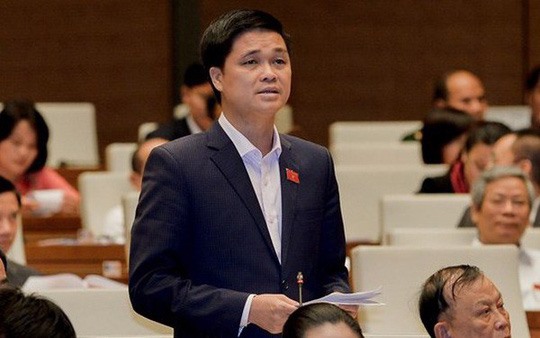.jfif) Opinion
Opinion

Ngọ Duy Hiểu, Vice President of the Việt Nam General Confederation of Labour, talks to the Đầu Tư (Investment) newspaper on workers' need for accommodation to reach their full potential
 |
| Ngọ Duy Hiểu. — Photo nld.com.vn |
Ngọ Duy Hiểu, Vice President of the Việt Nam General Confederation of Labour, talks to the Đầu Tư (Investment) newspaper on workers’ need for accommodation to reach their full potential
Has housing become a big issue for migrant workers working in industrial parks?
Housing for people working in industrial parks and hi-tech zones has become a hot issue in all such areas in our country. Millions of Vietnamese work in either industrial parks or hi-tech zones. Yet, only 20 per cent of them have stable accommodation while the rest often move from one place to another. This has become a big problem for both the workers and their children. It has also had negative impacts on the workers’ productivity.
Nowadays, almost all economic growth motivations have been fully tapped, including natural resources, so if we want to achieve high economic growth, there is no other way than to increase production yield while giving more training to workers, particularly on how to use advanced technology. Last but not least, all working people want stable housing as in Vietnamese we have a saying “a good shelter flourishes one’s career”.
In the last 10 years, the Government has adopted a special policy for industrial park workers. Can you explain that policy?
In 2009, the Government issued Resolution 19 on housing development for many people, including workers in industrial parks. Under Resolution 19, by 2015, up to 50 per cent of people working in industrial parks nationwide were hoped to have their own accommodation.
Meanwhile, the National Strategy on Housing Development also set a target that by the year 2020, some 70 per cent of workers in all industrial parks will have accommodation if they want. In other words, having a decent place to live is a basic right of an employee.
Housing development has been considered an important content of the Government’s policy on socio-economic development.
Would you agree that little has been achieved so far?
I couldn’t agree more! Only a small number of workers in industrial parks have been offered stable accommodation built by industrial park owners. Environmental hygiene and social infrastructure is still an urgent issue that needs further attention from responsible people. According to the plan up to 70 per cent of the workers’ housing demand is hoped to be met by 2020. But many obstacles are still lying ahead.
Last but not least, there are two other reasons delaying the housing projects for the workers in many industrial parks - a lack of funding and a lack of clean land for housing construction to start.
Are land and financial policies already available?
Yes! According to the law, when a licence is granted for an industrial park to operate, clean land to build factories and accommodation for the workers must be available.
Regarding the project financial scheme, it is already stated clearly in each project’s document.
Under Vietnamese law, the financial scheme for the housing development programme, including houses for workers in industrial parks, should come from various sources, including direct investment from the central Government, Government bonds, housing development funds and others. They all enjoy low interest rates compared to commercial interest rates.
With instructions from the Prime Minister, the People’s Committees at all levels and the general public, we have to consider the task of social housing development an important task in the course of carrying out the national socioeconomic mission. — VNS




